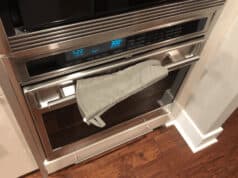“And the mystery basket ingredients are…” That single phrase, expressed weekly on “Chopped” from Food Network, gets millions of viewers in America to stop what they are doing and stare at the TV in anticipation. As soon as host Ted finishes rattling off an eclectic mix of ingredients to the competitors, the first thought of the audience is always something like: what are they going to make with that!? I don't even know what that ingredient is!?
Therein lays the key to success for the show; what makes it so unique and fun. On the fly innovation and creativity – making the seemingly impossible, possible (and delicious) in 20 minutes. I've watched show since its debut in 2009 and have continued to be fascinated by the contestants' abilities to transform those crazy ingredients into incredible dishes. I am amazed over and over by their skills and knowledge in the kitchen; blown away by their abilities to remember so many ingredients and recall so many recipes from memory.
While watching an episode one night I had a bit of a revelation. For years these chefs have studied, learned and created recipes. “Chopped” is just a reapplication of this familiar information, with the added challenge of not knowing ingredients beforehand. In a way, isn't this scenario what we face daily as Lean professionals? We are given problems to solve (make a meal or reduce cycle time,) with factors we haven't dealt with before (yucca or tahini paste anyone?) in combinations we've never imagined (shrimp and peanut butter, yum). And yet, we are able to use the skills we've developed over the years (recipes and techniques) to come to a solid result (dish or project solution).
A few more Chopped and Lean comparisons.
- Recipes: The chefs on Chopped are successful because they know the common recipes and techniques of cooking needed to solve the “mystery basket” problem at hand. As Lean professionals, even the trickiest curveball of “mystery basket ingredients” – poor data, uncooperative teammates, lack of funding – can be overcome by using our knowledge, experiences, and learned skills.
- Pantry & Fridge: Regardless of those bizarre mystery ingredients, you are not alone. Just as the chefs have the pantry and refrigerator – you have backup, you are not alone. There are books for reference and social media, along with your network and coworkers to help. You may have to run to the “pantry” and poke around a bit for exactly what you need and a bit of inspiration, but the resources are there for your use.
- Back up plans: Sometimes, even the most talented of chefs, repeatedly burn the caramel. At this point, it is time to accept something isn't working (poor ingredients, stove too hot) and move on to a backup plan. This doesn't mean you are giving up or the assignment is a failure. It just shows you need to be flexible to adapt and change course when something isn't working.
- Presentation: We'd like to think that a good idea or a successful project, like delicious food, would stand for itself without a fancy display or snazzy PowerPoint presentation. But alas, we “eat” with our eyes first, and how we present a new idea or finished product does put that final touch on the endeavor. Just keep the clip art and animations to a minimum shall we? Just like a garnish you can't eat, they distract from the overall plate…I mean pitch.
Once you learn the basic Lean ingredients (methodologies), how to use the tools and practice executing those “recipes,” you can tackle bigger and more complicated projects that come your way. Just be glad you don't have a panel of judges narrating as you type data in Excel or sketch a Value Stream Map.
Christina invites you to connect with her via Twitter (@ChristinaKach) and her blog for young professionals – “Catch Careers.”
Please scroll down (or click) to post a comment. Connect with me on LinkedIn.
Let’s build a culture of continuous improvement and psychological safety—together. If you're a leader aiming for lasting change (not just more projects), I help organizations:
- Engage people at all levels in sustainable improvement
- Shift from fear of mistakes to learning from them
- Apply Lean thinking in practical, people-centered ways
Interested in coaching or a keynote talk? Let’s talk.
Join me for a Lean Healthcare Accelerator Trip to Japan! Learn More










Haha, great analogy! But sometimes I wish I had a jury judging me so they could tell me what I was doing wrong. If you don’t see the mistakes you make, and someone else points you to them, there’s another opportunity to learn and improve!
I guess that’s where the sensei comes in? :-)